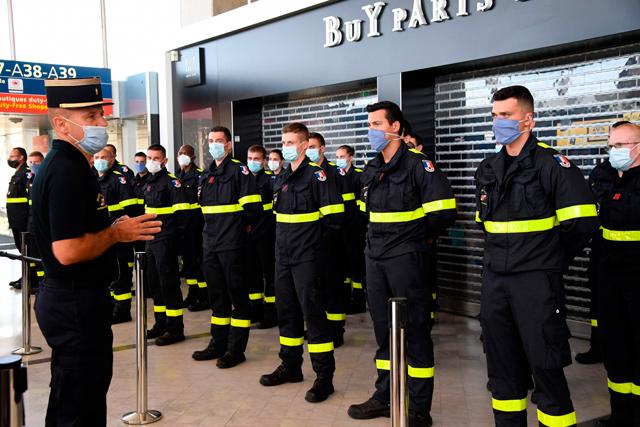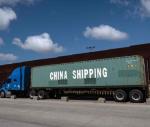You are here
Lebanon seizes dangerous fertiliser in country's east
By AFP - Sep 18,2021 - Last updated at Sep 18,2021

An aerial view of Beirut port shows a damaged grain silo and the crater caused by a colossal explosion on August 4, 2020 (AFP file photo)
BEIRUT — Lebanese authorities have seized 20 tonnes of ammonium nitrate, the same chemical behind a deadly explosion last year at Beirut's port, in the eastern Bekaa Valley, state media reported on Saturday.
Ammonium nitrate is an odourless crystalline substance commonly used as a fertiliser that has been the cause of numerous industrial explosions over the decades.
At least 214 people were killed and some 6,500 others wounded on August 4, 2020 when a shipment of the chemical carelessly stocked at the Beirut port for years ignited and caused a massive blast.
On Saturday, the National News Agency (NNA) said security forces raided a fertiliser warehouse in the eastern Bekaa Valley, considered a hub for smuggling operations between Lebanon and Syria.
Authorities seized 20 tonnes of the dangerous chemical stored inside a truck parked at the warehouse, the NNA said, adding the material was transported to a "safe place".
Interior Minister Bassam Mawlawi, who visited the Bekaa Valley on Saturday, called on security forces to conduct a sweep of the area.
"We must do our best to move these materials to a safer place away from exposure to heat and sun" to avoid a "catastrophe", the NNA quoted him as saying.
The company that owns the ammonium nitrate said that the fertiliser was intended for agricultural use.
"One of our employees informed the relevant authorities that we have ammonium nitrate, so they raided the warehouses on Friday," one of the company heads told AFP on condition of anonymity.
The name of the firm that owns the fertiliser has not been made public pending investigations.
"We have been working in the feed and fertiliser industry for 40 years," the company official added.
When combined with fuel oils, ammonium nitrate creates a potent explosive widely used in the construction industry, but also by insurgent groups for improvised explosives.
Lebanese authorities are still investigating the circumstances in which hundreds of tonnes of the chemical ended up in the Beirut Port for years, before the monster explosion that levelled swathes of the city.
Related Articles
BEIRUT — In the year since a monster explosion disfigured Beirut, a local probe has yet to yield significant arrests or even identify a culp
BRUSSELS — The European Union (EU) said on Wednesday it would rush rescuers, search dogs and equipment to Beirut to look for any survivors t
BEIRUT — Lebanon's lead investigator into the catastrophic Beirut Port explosion charged outgoing premier Hassan Diab and three ex-ministers
















